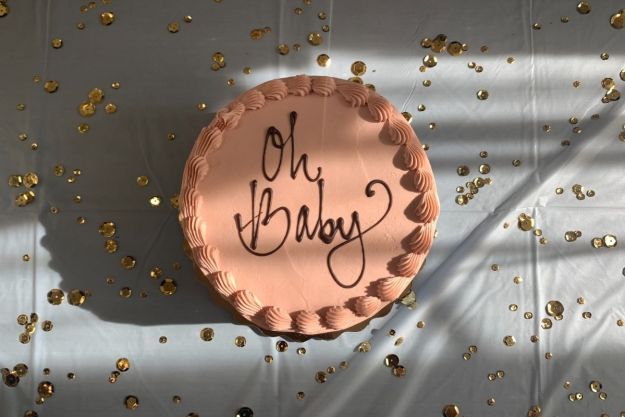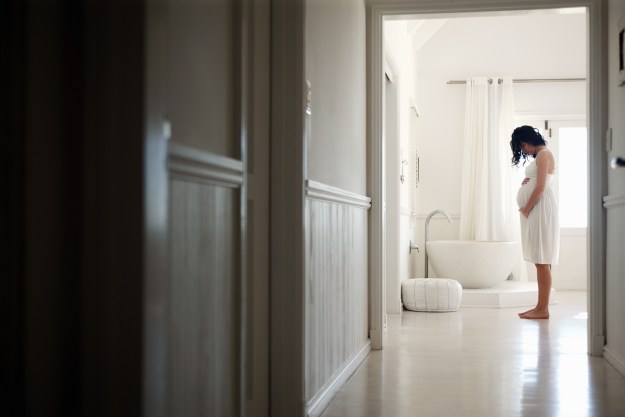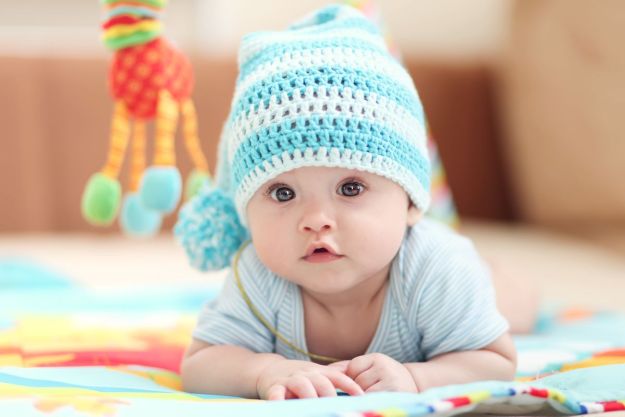Many new moms feel unprepared for the postpartum period. Your body and hormones shift and change for months. You may lose hair and can feel as if you don’t recognize yourself anymore. This, combined with caring for a new baby and lack of sleep, can leave you experiencing strong emotions.
How do you know if you have postpartum depression? If these feelings become too intense or too persistent, you may be experiencing postpartum depression. The American Psychological Association estimates that one in seven women struggle with postpartum depression.
Postpartum depression can show up weeks or months after a woman gives birth. Amy W. Anzilotti, MD explains that the hormonal changes a new mom experiences after giving birth combined with a lack of sleep and increased stress contributes to postpartum depression.
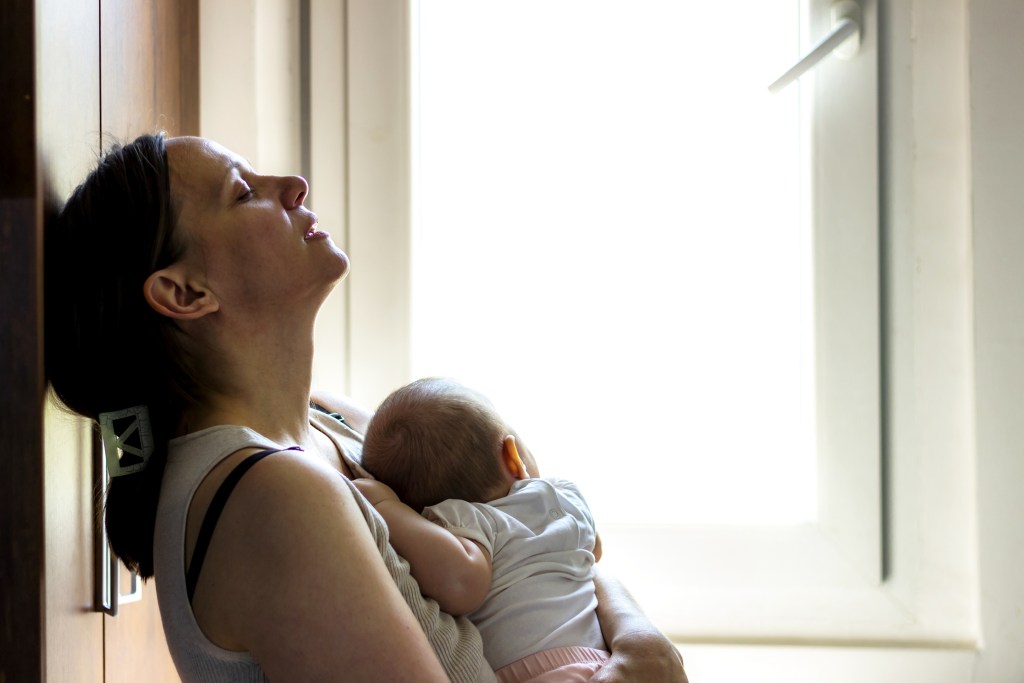
Postpartum depression signs and symptoms
Listening to your body and paying attention to all your emotional and physical changes during the postpartum period can help you notice if you’re crossing from baby blues to postpartum depression. Although each person may experience varying symptoms, here are eight early warning signs of postpartum depression.
Endless baby blues
Your fluctuating hormones may cause you to feel a lot of feelings throughout your day. Determining what’s “normal” baby blues and what’s postpartum depression can be tricky. Consider reaching out to your doctor if you notice these feelings of sadness or moments of crying are lasting longer than usual, or if you struggle to regain your happiness.
You are uninterested
When is the last time you engaged in a hobby that usually brings you joy? If you’re finding yourself going longer and longer periods without participating in the activities you once enjoyed, or if you can’t remember the last time you got excited to do something, you may have postpartum depression. Losing interest in pastimes or not getting eager to partake in fun can be a sign of postpartum depression.
No appetite
Moms often joke about not having time to eat, especially in the new baby phase. When missing a meal here and there because the baby fell asleep on you becomes not remembering the last time you ate or not being interested in eating at all, you should consider asking for help. A symptom of postpartum depression is not having an appetite or having to force yourself to eat.
Not bonding with baby
Bonding with your baby is important for your relationship and your newborn’s development. Not being able to bond with your baby can be an indicator that you’re experiencing postpartum depression. Women who struggle to bond with their babies may be uninterested in holding them or may become irritated by the crying and needs of their babies.
No motivation or energy
Having a newborn is exhausting. It can seem as if your whole day is spent rocking, bouncing, and feeding. Moms with postpartum depression may notice that even after their babies sleep for longer stretches, they don’t feel energized and may still feel tired all the time. Postpartum depression can manifest in a lack of motivation and exhaustion.
Difficulty sleeping
Changes in your sleep pattern are inevitable with a newborn. When you have postpartum depression, however, your inability to get a good night’s sleep has little to do with your baby’s sleep habits. You may fall into bed each night exhausted only to spend hours waiting to fall asleep. If you have trouble falling asleep, staying asleep, or waking up, it may be a sign you’re experiencing postpartum depression.
Feeling anxious
All new parents worry about keeping their babies healthy and safe. Postpartum depression can turn that concern into terrible anxiety. You may be constantly anxious about your baby or find yourself worrying about unlikely scenarios. Some moms with postpartum depression struggle to leave their babies alone for a few minutes or panic when leaving their newborns with a loved one for even small amounts of time.
Feeling overwhelmed
All the changes bringing a newborn home can cause moms to feel overwhelmed. As you settle into a routine, you should start feeling like you have a handle on the day-to-day care of your infant. If instead, you feel less able to cope as time progresses, you may be experiencing postpartum depression symptoms.
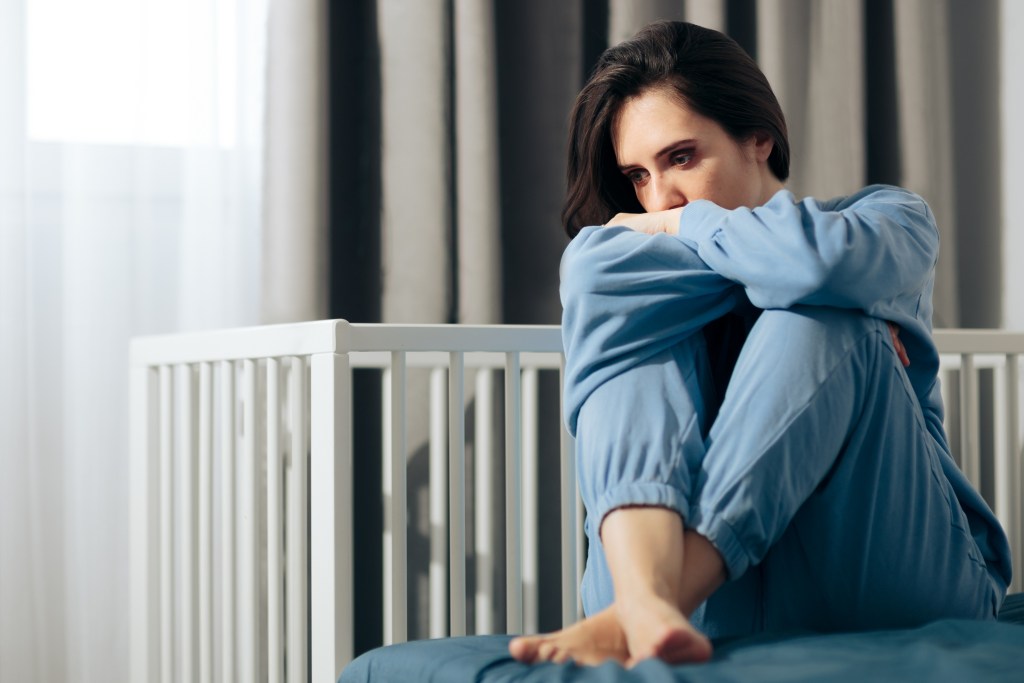
When you should call the doctor
If you’re experiencing symptoms of postpartum depression, contact your doctor. Typically, only a doctor or mental health professional can diagnose postpartum depression. Your medical professional will take into account your symptoms when making a diagnosis.
There are several ways to treat postpartum depression. Moms can find support through groups created for moms experiencing postpartum depression. You can also seek out counseling or attempt to make lifestyle changes to reduce your stress. Many moms find relief with medication and there are prescriptions you can take even if you’re breastfeeding.
Left untreated, postpartum depression can lead to thoughts about harming yourself or your baby. Anzilotti also cautions that in extreme cases, postpartum depression can even lead to feelings of paranoia and hallucinations.
Use this guide to check in with yourself and see if you’re feeling the regular amounts of exhaustion, or if perhaps you’re slipping into postpartum depression. If you’re concerned, you should give your doctor a call and schedule an appointment.
Editors' Recommendations
- Your questions answered – everything you need to know about baby-led weaning
- The ultimate nursery checklist of everything you need (and nothing you don’t)
- When do pregnancy cravings actually start? The answer may be surprising
- Glass vs. plastic baby bottles: Here’s what doctors have to say
- How much water should a 1-year-old drink? What you need to know

